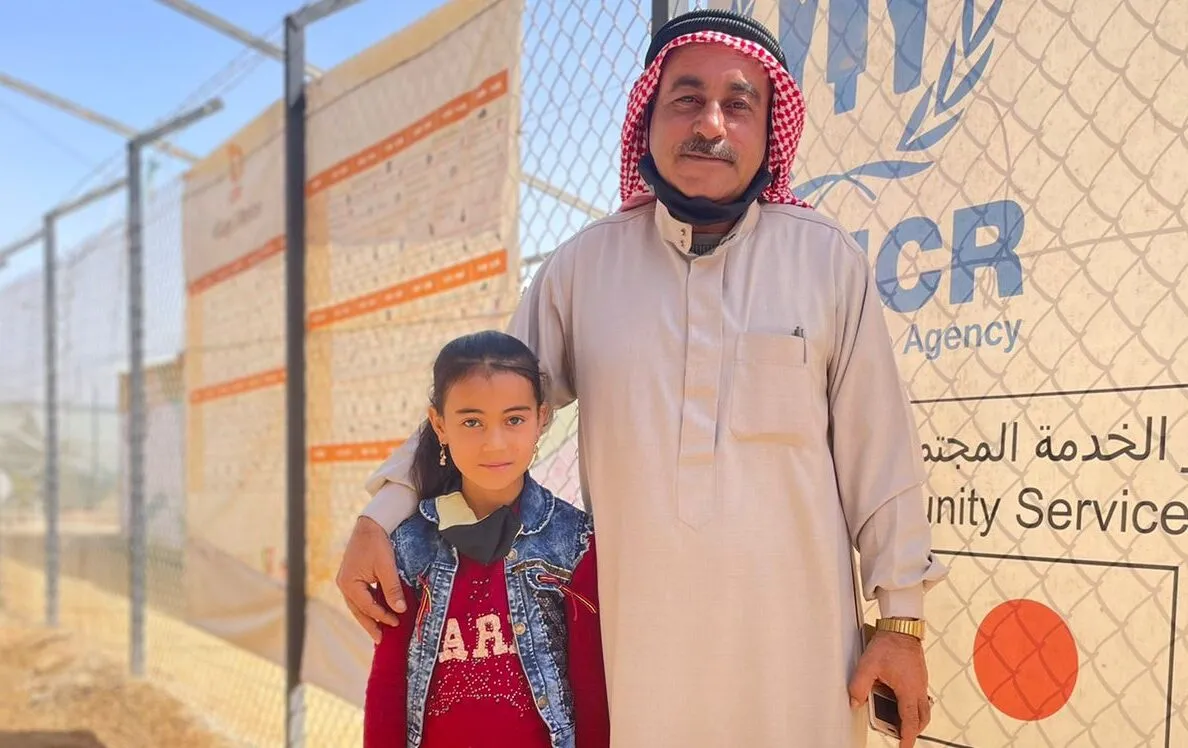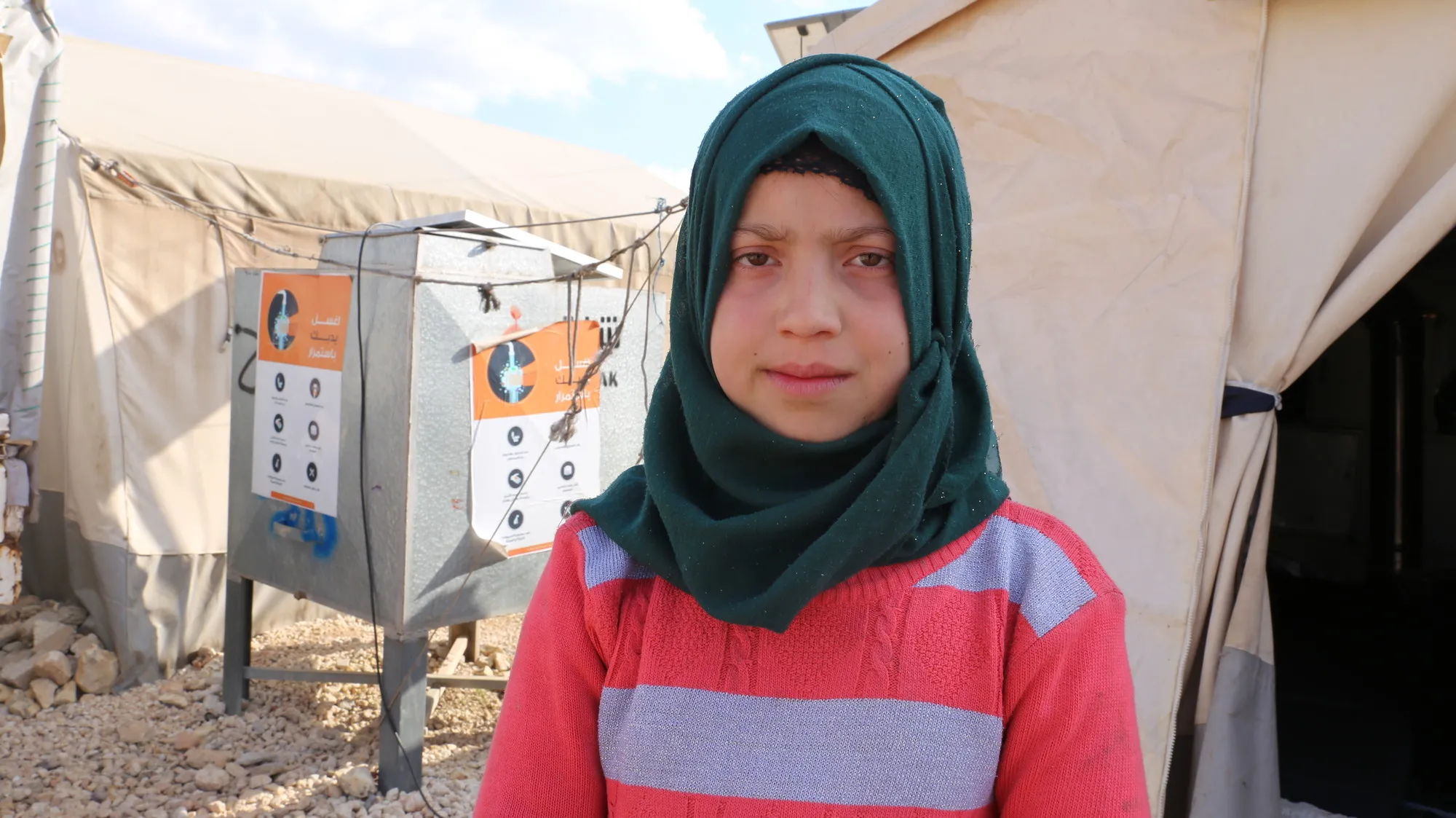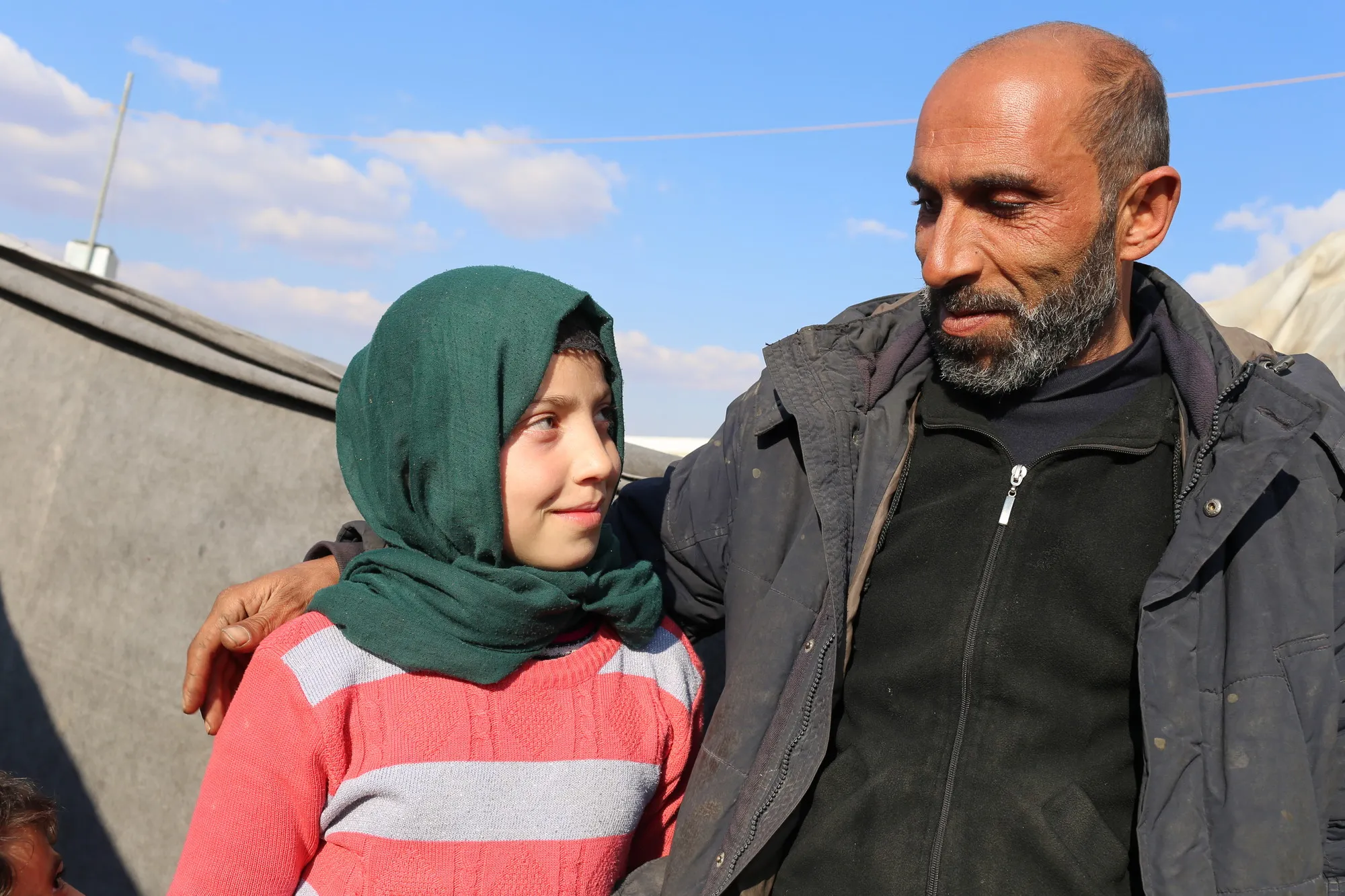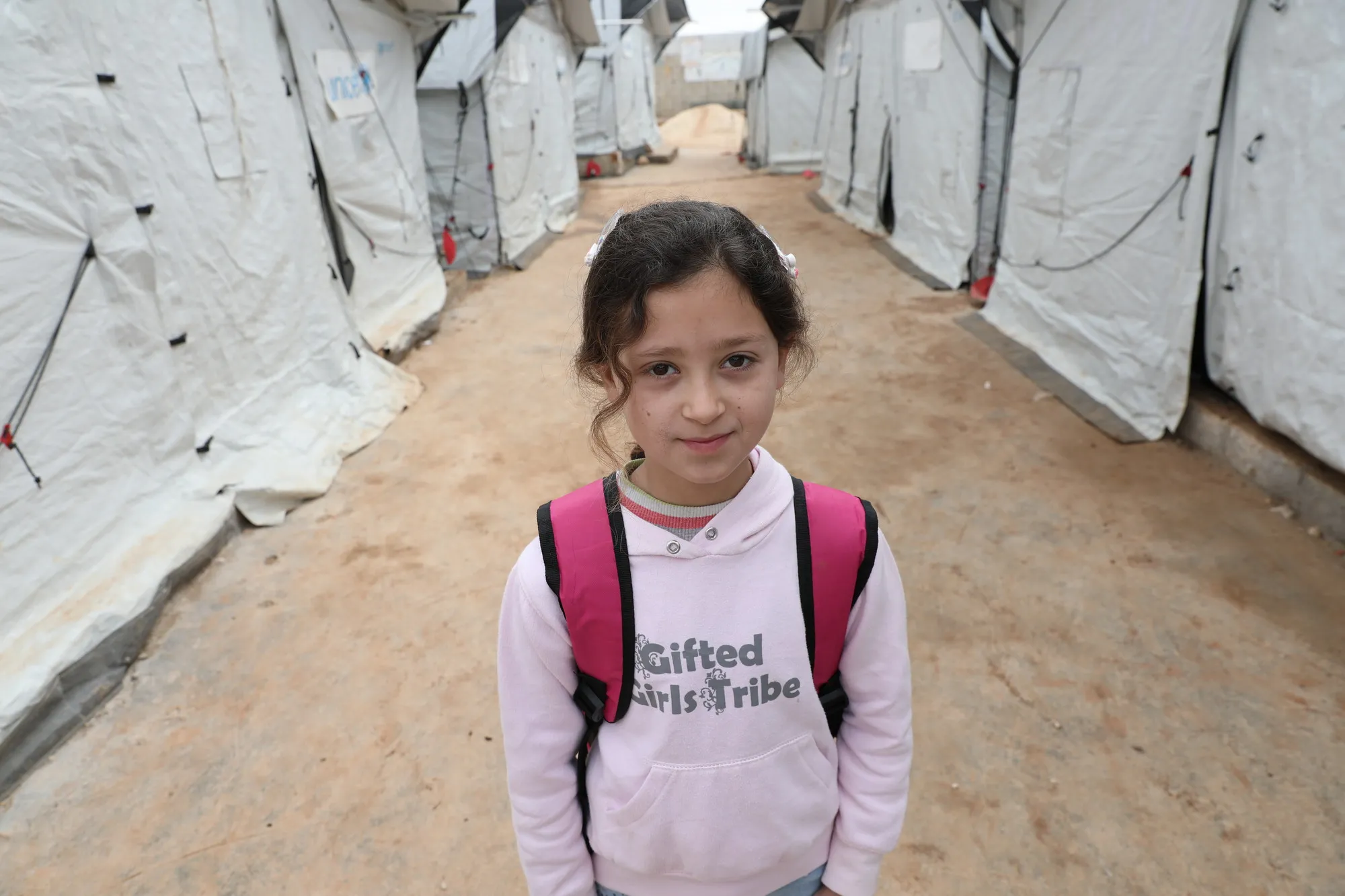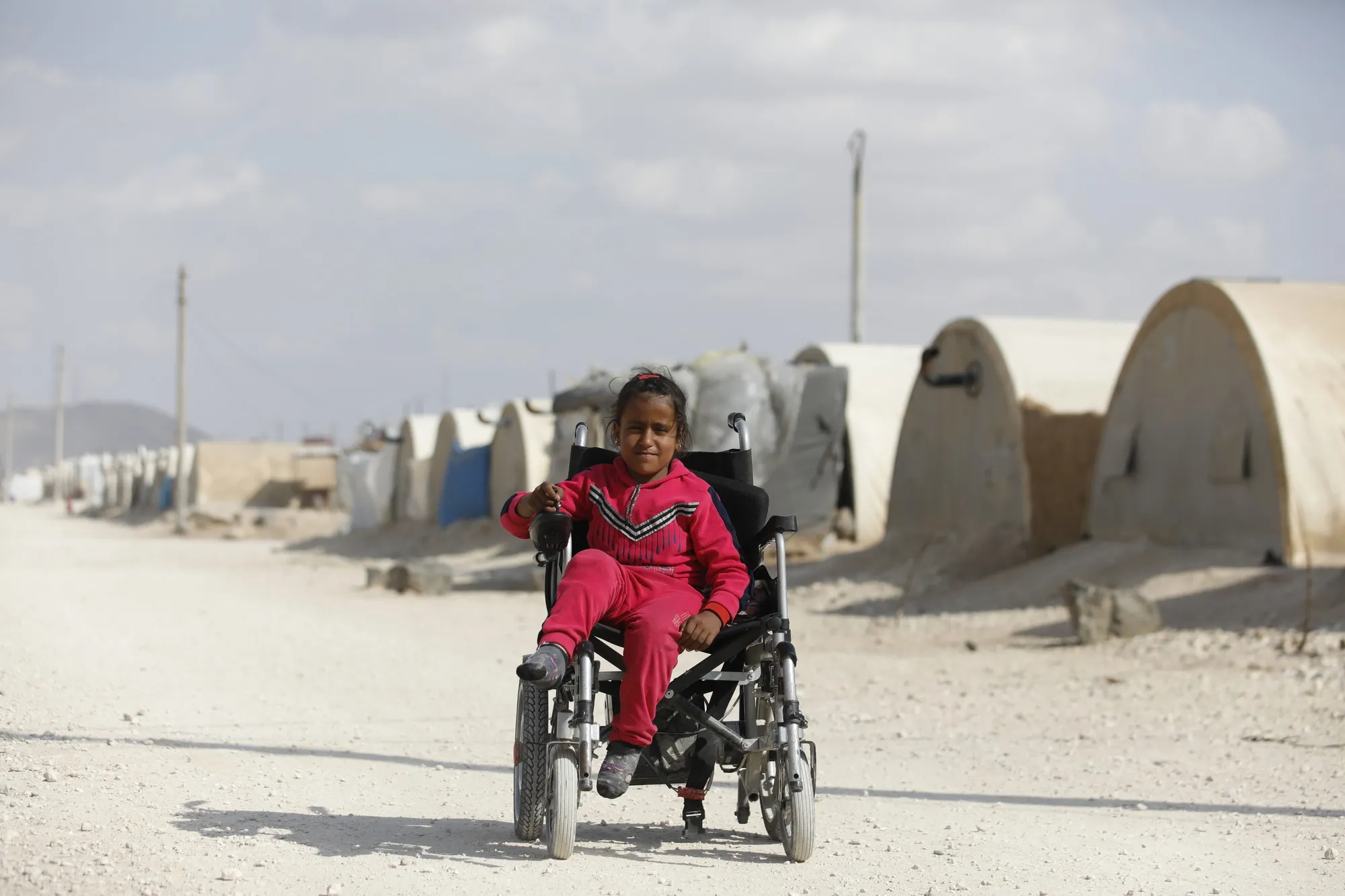Atiya, 11, Lebanon
Although she’s lived in Lebanon from age three, Atiya has a strong sense of identity. “Even though we’ve been here for a long time, even though we have Lebanese friends and I go to school, we’re different,” she says. “Our accent is different. I feel different from everyone else. I’m not in my country and when you’re somewhere else, you never feel really safe.”
Atiya barely remembers Syria, She knows her native country only through stories told by her parents. “I remember there were bombs, I remember the noises, the hisses and explosions. My parents say Syria was beautiful, that it was a good place to live. They tell me about the food, the shops, the parks and the walks we took. But I don’t really know,” she says.
“Sometimes people ask me why I am still here, why I don’t go home. I want to shout to them: ‘Why don’t you understand? My country was destroyed — where do you want me to go? I have nowhere to go.'”
She, her parents and four siblings live in Nabaa, a poor neighborhood in the suburbs of Beirut. A few years ago, Atiya made a drawing of a house surrounded by a garden with a little girl in it. “I imagined Syria and our house. My parents say our home was burnt down and the neighborhood completely destroyed,” she says. Her extended family is similarly torn apart, spread across Lebanon, Jordan and Syria.
Atiya dreams of peace being restored in Syria and of her family reuniting. “Sometimes people ask me why I am still here, why I don’t go home. I want to shout to them: ‘Why don’t you understand? My country was destroyed — where do you want me to go? I have nowhere to go,'” she says.
The crisis in Lebanon has made it difficult for Atiya’s parents to meet the family’s basic needs. CARE assisted by providing her with a back-to-school kit at the beginning of the school year.
Zenab Bagha, Patricia Khoder, Amal Maayeh, and Johanna Wynn Mitscherlich contributed to this story.

